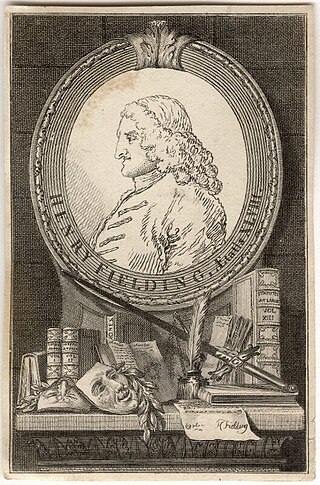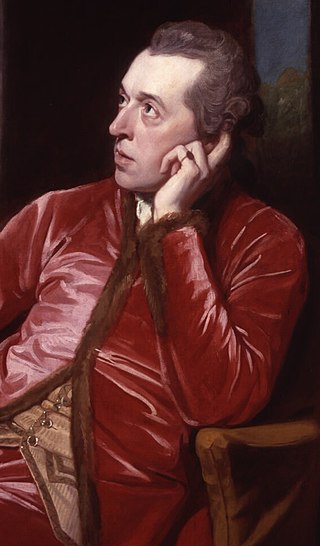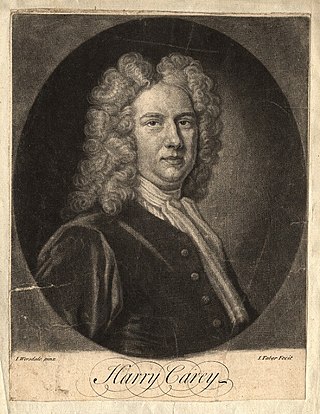
Philip Frowde (died 1738) was an English poet and dramatist.

Philip Frowde (died 1738) was an English poet and dramatist.
Frowde was the son of Ashburnham Frowde, deputy postmaster-general from 1678 to 1688. His grandfather, Colonel Philip Frowde, for his faithful adherence to Charles I and Charles II was knighted on 10 March 1664–5, and appointed governor of the post office.
From Eton College, where young Philip was contemporary with Robert Walpole, Frowde passed to Magdalen College, Oxford, as a gentleman-commoner, and became one of Joseph Addison's pupils. He did not take a degree.
Frowde died unmarried at his lodgings in Cecil Street, Strand, in December 1738, and was buried in the cemetery in Lamb's Conduit Fields.
To vol. ii. of Musarum Anglicanarum Analecta (Oxford, 1699, edited by Addison), Frowde contributed Cursus Glacialis, Anglicè, Scating. In May 1720 Edmund Curll published these verses as Addison's, together with an English version also supposed to be Addison's, and a preface by one T. N., who stated that although Addison was well known to be the author, he had always allowed Frowde to pass them off as his own. An anonymous imitation in English appeared in 1774; there is also a translation in Miscellane by J.G. (James Glassford), Edinburgh, 1818.
Frowde wrote a blank verse tragedy entitled The Fall of Saguntum , London, 1727, influenced by Cato, a Tragedy . It was acted at Lincoln's Inn Fields Theatre on 16 January 1727, James Quin representing Eurydamas and delivering the prologue by Lewis Theobald. The tragedy obtained only about three representations, and is noted for a dedication to [Walpole, who is described as "bringing the learning and arts of Greece and Rome into the cabinet; either that to instruct in the depths of reasoning; or these in the rules of governing". Before its performance A. B., (possibly Frowde himself) undertook to explain for the benefit of "a lady of quality" the historical and classical allusions in the play in The History of Saguntum (1727), which also argues the dramatist's superiority over Silius Italicus, from whose Punica the plot was partly derived. Another lugubrious tragedy in blank verse, Philotas , London, 1731 (also 1735), brought out at Lincoln's Inn Fields on 3 February 1730–1, with Quin again in the cast, met with an even colder reception, though it ran for six nights. Henry Fielding introduced an ironical encomium on Philotas in Joseph Andrews .

Henry Fielding was an English writer and magistrate known for the use of humour and satire in his works. His 1749 comic novel The History of Tom Jones, a Foundling was a seminal work in the genre. Along with Samuel Richardson, Fielding is seen as the founder of the traditional English novel. He also played an important role in the history of law enforcement in the United Kingdom, using his authority as a magistrate to found the Bow Street Runners, London's first professional police force.

Richard Cumberland was an English dramatist and civil servant. In 1771 his hit play The West Indian was first staged. During the American War of Independence he acted as a secret negotiator with Spain in an effort to secure a peace agreement between the two nations. He also edited a short-lived critical journal called The London Review (1809). His plays are often remembered for their sympathetic depiction of characters generally considered to be on the margins of society.
This article contains information about the literary events and publications of 1739.

John Dennis was an English critic and dramatist.

James Quin was an English actor of Irish descent.
Lacy Ryan, English actor, appeared at the Haymarket Theatre about 1709.

Henry Carey was an English poet, dramatist and songwriter. He is remembered as an anti-Walpolean satirist and also as a patriot. Several of his melodies continue to be sung today, and he was widely praised in the generation after his death. Because he worked in anonymity, selling his own compositions to others to pass off as their own, contemporary scholarship can only be certain of some of his poetry, and a great deal of the music he composed was written for theatrical incidental music. However, under his own name and hand, he was a prolific songwriter and balladeer, and he wrote the lyrics for almost all of these songs. Further, he wrote numerous operas and plays. His life is illustrative of the professional author in the early 18th century. Without inheritance or title or governmental position, he wrote for all of the remunerative venues, and yet he also kept his own political point of view and was able to score significant points against the ministry of the day. Further, he was one of the leading lights of the new "Patriotic" movement in drama.

The siege of Saguntum was a battle which took place in 219 BC between the Carthaginians and the Saguntines at the town of Saguntum, near the modern town of Sagunto in the province of Valencia, Spain. The battle is mainly remembered today because it triggered one of the most important wars of antiquity, the Second Punic War.

Augustan drama can refer to the dramas of Ancient Rome during the reign of Caesar Augustus, but it most commonly refers to the plays of Great Britain in the early 18th century, a subset of 18th-century Augustan literature. King George I referred to himself as "Augustus," and the poets of the era took this reference as apropos, as the literature of Rome during Augustus moved from historical and didactic poetry to the poetry of highly finished and sophisticated epics and satire.

George Sewell was an English physician and poet, known as a controversialist and hack writer.

Thomas Walker (1698–1744) was an English actor and dramatist.
The Fall of Saguntum is a 1727 tragedy by the British writer Philip Frowde. The plot revolves around the Siege of Saguntum in the Second Punic War, and is fall the forces of the Carthaginian general Hannibal. Influenced by the style of John Addison's play Cato it was dedicated to Prime Minister Sir Robert Walpole.
Philotas is a 1731 tragedy by the British writer Philip Frowde. It is based on the life of the Ancient Greek warrior Philotas who was executed for conspiring against Alexander the Great. The story had previously been written as a 1604 play by Samuel Daniel.
William Milward (1702-1742) was a British stage actor.
Thomas Chapman (1683-1747) was a British stage actor.
Charles Hulett (c.1700-1735) was a British stage actor. His name is sometimes written as Charles Hulet.
Anne Parker (1696-1740) was a British stage actress of the eighteenth century. She is also known by her married names Anne Berriman and Anne Hallam.
Philip of Macedon is a 1727 tragedy by the British writer David Lewis. It is set during the reign of Philip of Macedon.
Richard Diggs was a British stage actor.
![]() This article incorporates text from a publication now in the public domain : "Frowde, Philip". Dictionary of National Biography . London: Smith, Elder & Co. 1885–1900.
This article incorporates text from a publication now in the public domain : "Frowde, Philip". Dictionary of National Biography . London: Smith, Elder & Co. 1885–1900.